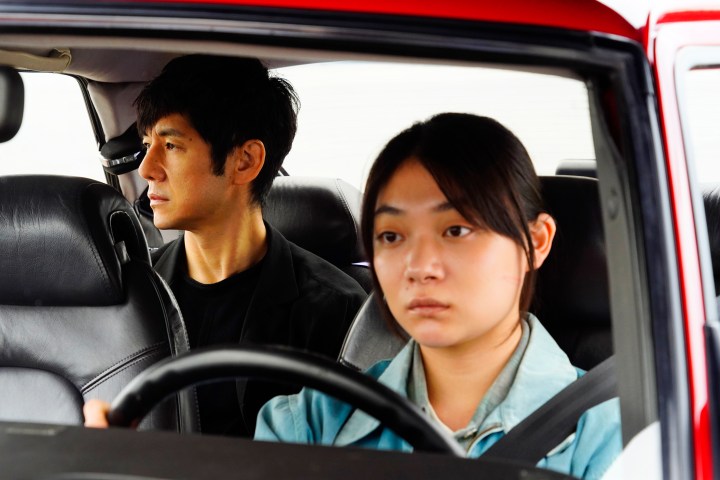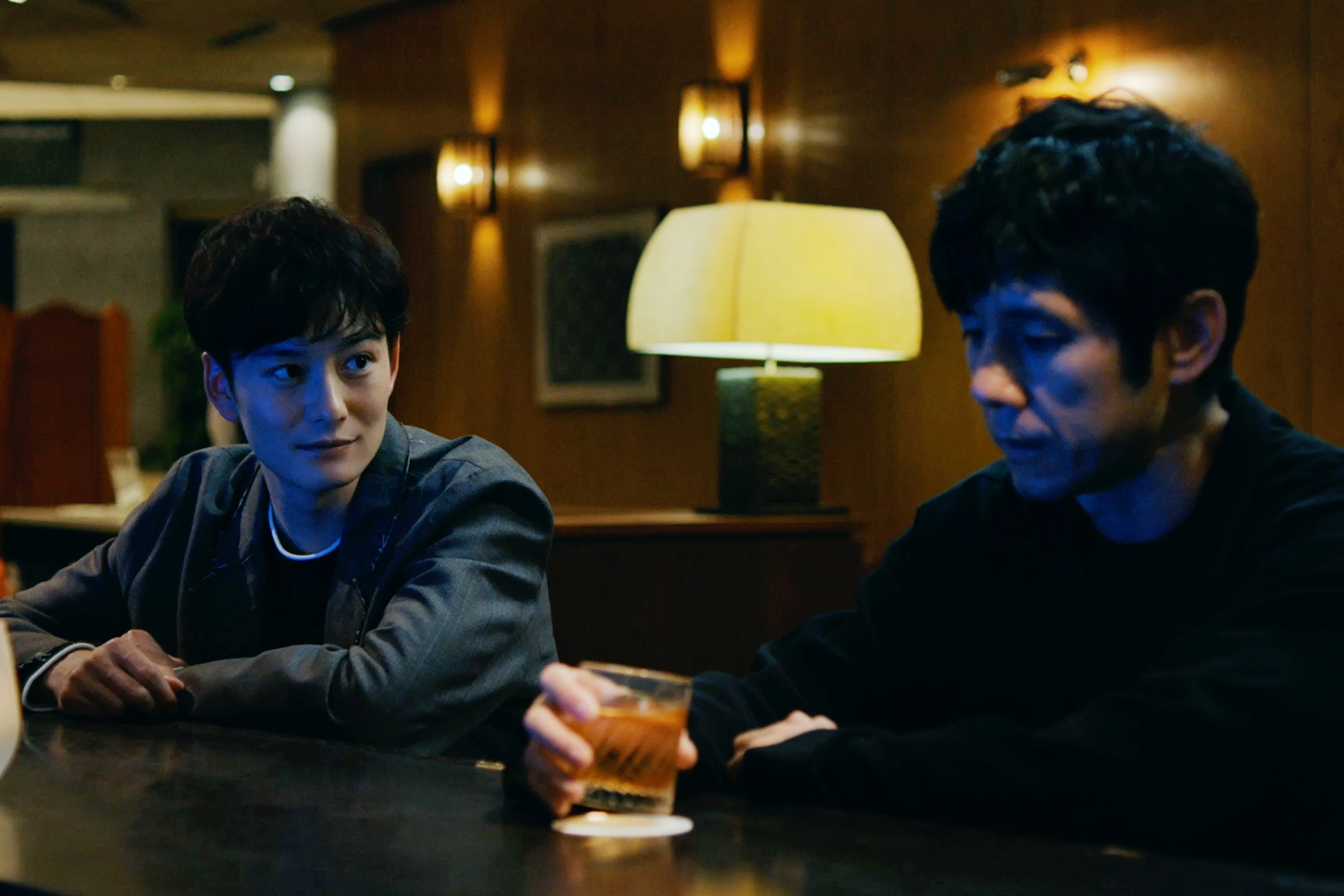This weekend we’re watching
A review of Drive My Car, a winner at the 2022 Oscar: The embodiment of Murakami’s writing

Ryusuke Hamaguchi’s effortlessly poetic adaption of Japanese author Haruki Murakami’s minimalist writing wins Best International Feature Film at the 94th Academy Awards.
Drive My Car is based primarily on a short story of the same name by Haruki Murakami, but it seems more fitting to speak of it as an adaption of Murakami’s writing more broadly. While the film is a whole three hours long, the Japanese short story is only 50 pages, so director Ryusuke Hamaguchi incorporated several other stories from Murakami’s collection Men Without Women.
Murakami’s stories are loved for their sensitive presentation of human connection in its versatility. Rooting his plots in the language and thought of his characters, he spins a melancholy, almost magical thread that tangles and joins individuals even as the setting itself is minimalistic. Hamaguchi has emulated the same feat in his film, and without the use of spoon-feeding flashbacks or narration, the result is even more ruminative than the source material.
“Murakami’s work is very difficult to adapt, because a lot of his stories balance realistic realms and unrealistic realms; that’s difficult to show on film. And he often depicts the inner lives and feelings of the characters, which is also a challenge to translate on screen. The short story ends abruptly, too, and I felt like I needed to take that story somewhere beyond where it ends on the page,” says Hamaguchi.
In the first moments, we tumble into obscurity. The silhouette of a woman speaks seductively to her lover a tale of secret longing, about people with names we don’t yet know. We grasp inquisitively at understanding — who is the speaker? Is she speaking of herself or someone else? The ambient music gives no clue whether we are witnessing intimacy or something darker…

Image: Supplied
And then all at once, without any bells and whistles, the mystery is broken — we see her face, we hear her name, Oto (played by Reika Kirishima), and we understand that her sly tale is a screenplay she is pitching to her husband.
Oto is a screenwriter married to a renowned stage actor and director, Yūsuke (Hidetoshi Nishijima). Oto conceives and orates her stories to Yūsuke during the fervour of sex. Despite the loss of a daughter decades ago, the couple appears to be thriving, their relationship weaved strongly by stories, sex, and the intersection of their crafts.
But one day, Yūsuke finds Oto with another man. Terrified to lose her, he leaves silently without being seen. Some time later, Oto asks to speak to him about something, but when he returns home, he finds her collapsed on the floor.
Hamaguchi exercises so much restraint in the portrayal of such vital moments. They’re not accompanied by dramatic music or suggestive cues, nor hand-holding or mournful screams. Oto suffered brain haemorrhaging — there is no potential for conspiracy or a quest for vengeance. This calamity is just the prologue for Yūsuke’s journey of philosophical growth that makes up most of the film.

Image: Supplied
The eerie serenity of the film’s first moments comes to make sense in their relation to the mystery which shrouds Oto in Yūsuke’s mind. He does not know whether she was going to confess her infidelity to him or not. Was she deceitful or was she genuinely loving and caring while seeking out other men? Is it possible to truly love someone while you knowingly betray them?
Yūsuke is constantly challenged to ask these questions in his professional life. He accepts a residency directing a production of Chekhov’s Uncle Vanya at a theatre in Hiroshima, a play that he has acted in himself before, but upon arriving, he is told that for insurance reasons, he will not be allowed to drive himself around the city.
Driving is a precious part of Yūsuke’s life. His blazing red Saab is a gentle flex of individuality, a mobile capsule of solitude and peace. It is also the place he feels connected to Oto because he uses tapes of her reading scripts to practice his lines.
The title of the film makes sense as a literal statement from Yūsuke to his young stoic driver, Masaki (Kōji Takatsuki) but with his car being so close to his heart, it takes on metaphorical meaning as well. Hamaguchi explains that the setting of a car for so much of the important dialogue was one of the things that attracted him most to Murakami’s story.

Image: Supplied
“These depictions jogged my own memories of intimate conversations that are only born within that closed-off, moving space. Because it’s a moving space, it’s actually nowhere, and there are times when that place helps us discover aspects of ourselves that we’ve never shown anyone, or thoughts that we couldn’t put into words before.”
Following Murakami’s tradition, these intimate dialogues and the dynamics they portray (often by characters trying to withhold those dynamics) drive the most important scenes of the film. Hamaguchi emphasises that this dialogue doesn’t only happen using words.

Hidetoshi Nishijima and Masaki Okada. Image: Supplied

Sonia Yuan and Park Yurim. Image: Supplied
One of the ways Yūsuke is innovative as a director is that his plays are multilingual — the actors themselves can’t always understand each other’s words, so they are forced to react to body language and sounds and become more emotionally in tune.
A lot of the story is told through the inference of gestures, particularly during the play rehearsals. Cinematographer Hidetoshi Shinomiya insisted that Hamaguchi not discuss blocking with the actors or give them physical direction — rather he manipulated the lighting and cameras to capture scenes in whatever way was most natural to the performers.
The result was cinematography that is intentionally symbolic but unforced, urging the viewer to watch keenly with the attentive and appreciative outlook one takes when reading a poem or taking in an artwork — searching for meaning in detail, and often finding it, but not always in the same place as others.
Drive My Car is a slow and lengthy film, and yet one could not have made it a minute shorter without losing some of those subtle moments in between where life resides — the silences and little interactions so imbued with unnoticed significance. Hamaguchi’s film is not for everyone, but fans of Murakami may find it’s a deft embodiment of the author’s writing, unflinchingly cynical while effortlessly poetic. DM/ ML
Drive My Car is available in South Africa on MUBI. You can contact This Weekend We’re Watching via [email protected]

















 Become an Insider
Become an Insider
Comments - Please login in order to comment.